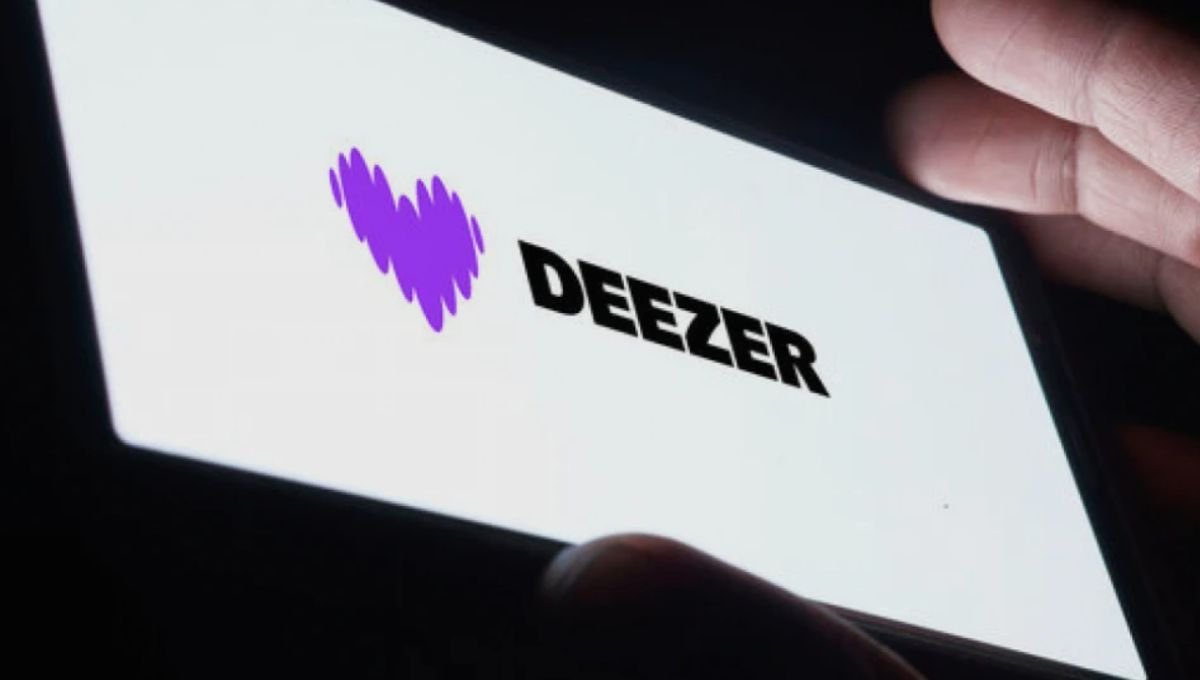Music streaming platform Deezer announced on Friday that it will begin labeling albums containing AI-generated songs, part of its broader initiative to combat fraudulent activity in the streaming industry.
The Paris-based company is dealing with a growing influx of music created using artificial intelligence tools—technology increasingly being used to collect royalties through automated uploads. As part of this new policy, Deezer will display a visible warning for listeners when an album includes content made with AI, flagging it as “AI-generated content.”
While Deezer remains a smaller competitor in a market largely controlled by Spotify, Apple Music, and Amazon Music, it emphasized that the misuse of AI-generated music is a problem facing the entire industry. CEO Alexis Lanternier stated that the company is committed to defending the rights of artists and songwriters, especially at a time when copyright laws are being challenged by the development of AI.
The announcement reflects broader concerns about the disruptive impact of generative AI systems, which are trained on vast amounts of data—text, images, and audio—scraped from the internet. AI developers have come under increasing legal scrutiny for using copyrighted content in this process without compensation.
Lanternier revealed that Deezer’s AI song detection tool, introduced earlier this year, has shown that about 18% of daily uploads—approximately 20,000 tracks—are entirely AI-generated. Just three months ago, that figure was only 10%, underscoring the rapid growth.
While Lanternier acknowledged AI’s potential to aid music creation, he warned about its misuse. “It’s okay when there’s an actual artist behind it,” he explained, “but problems arise when bots or unverified users flood platforms with mass-generated tracks designed to exploit the royalty system.”
These “music fraudsters” often attempt to game the platform’s algorithms, hoping to land their AI-generated tracks on curated playlists and collect royalties. Because artists can’t upload music directly to services like Deezer, Spotify, or Apple Music, many of these uploads are routed through self-service digital distribution platforms, making it easier for bad actors to distribute content at scale.
Even though fully AI-generated music currently represents only about 0.5% of all streams on Deezer, the company believes that much of this content is driven by fraudulent motives. According to its estimates, as many as 70% of AI-generated music streams come from bots or streaming “farms” rather than real listeners.
Deezer said it will block royalty payouts for any AI tracks linked to stream manipulation.
This move comes as legal challenges around AI in music continue to mount. AI song generators such as Suno and Udio are facing lawsuits from major record labels, accused of using copyrighted material without permission. These companies are alleged to have mimicked songs by a wide range of artists, from Chuck Berry to Mariah Carey.
In Germany, Gema—a royalty-collection group—is also taking action, suing Suno over songs it says bear strong resemblance to well-known hits like Alphaville’s “Forever Young,” Boney M’s “Daddy Cool,” and Lou Bega’s “Mambo No. 5.” Reports suggest that negotiations are underway between Suno, Udio, and record labels over potential licensing deals.
To detect AI-generated music, Deezer uses the same AI tools responsible for producing them. By analyzing subtle, recurring patterns in AI music, the platform trains its detection algorithms to stay one step ahead. “We keep generating songs with AI to feed our detection systems—basically fighting AI with AI,” Lanternier said.
Streaming fraud can be highly profitable. Lanternier cited a U.S. criminal case in which a man was accused of uploading hundreds of thousands of AI tracks, then using bots to stream them billions of times, netting around $10 million in fraudulent royalties. That case marked a turning point as the first U.S. prosecution of artificially inflated music streaming.
Also Read:
Rachel Zegler Wows Fans Outside Theater in Bold ‘Evita’ Staging














